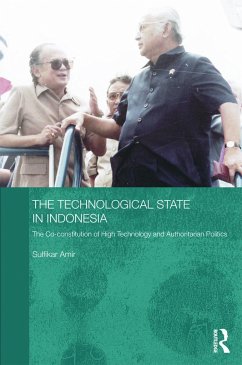
Arms Control and Technological Innovation
Versandkostenfrei!
Versandfertig in 1-2 Wochen
143,99 €
inkl. MwSt.
Weitere Ausgaben:

PAYBACK Punkte
72 °P sammeln!
First published in 1977, Arms Control and Technological Innovation is primarily concerned with three subjects: the causes of the arms race; the consequences of the arms race to the world; and the control of the arms race.














